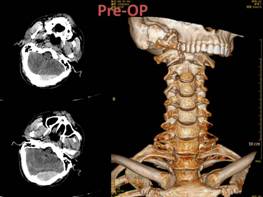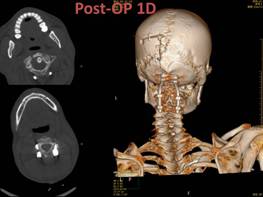选择神经外科医师还是矫形外科医师?问题重要么?
“如果我咨询一个脊柱方面的问题,或者我需要接受脊柱外科手术,我是应该去看神经外科医师呢,还是去看矫形外科医师?”
几个简单的事实将有助于感兴趣的患者加深了解。
重要的是,患者应认识到神经外科和矫形外科医生都做脊柱手术。现在,结合两个专业而出现了一个新兴领域“脊柱外科”。未来可能会出现“脊柱专家”这一有自己委员会认证的明确的医学专业。但目前情况并非如此。在当今,神经外科医师的专业资格认证是由美国神经外科委员会实施的,而矫形外科医师资格则由美国矫形外科委员会认证,目前作为委员会的“父辈” ——美国医学专业委员会并没有开始要对“脊柱外科专家”进行认证。对患者来说,更重要的是应该清楚其主治医师是否通过了高标准的执业考试并获得专业认可。
神经外科医师培训
美国的神经外科医师,一般是在完成了6到7年的住院医师培训之后,才系统地学习脊柱疾病的诊断及治疗(包括手术和非手术)。有些医师顺利地完成了神经外科培训,他们通常已经比较了解脊柱疾病的诊治程序。如果他们希望获得更高阶的训练,他们可以选择在脊柱外科进行进一步的研究。这种密集的,有重点的培训通常是在住院医师培训一、两年后进行。大多数患者错误地认为神经外科医师就是“脑外科医生”,其实,大多数神经外科手术是脊柱外科手术。当然在某些医院特别是大学附属医院中,也有些医生只专注于脑部手术很少进行脊柱手术。但是在这些分工明确的科室中,同时会有擅长脊柱外科的医师共同工作。
矫形外科医师的培训
所有的矫形外科医师在他们4-5年的培训计划中也接触到脊柱外科。一些矫形外科的住院医师会在拥有1名或多名比较擅长脊柱外科的矫形外科医师的机构学习。在这些机构中,住院医师要进行的脊柱外科训练不比神经外科医师少。有些矫形外科住院医师培训着重于外伤或骨关节手术及运动医学。一些希望专门从事脊柱外科和想要获得进一步培训的矫形外科医师可以在住院医生学习后继续从事脊柱外科研究,这和神经外科的情况是相似的。
神经外科医师和矫形外科医师双方都可以从事脊柱外科
现在,在矫形外科和神经外科都有很多在脊柱外科方面比较擅长的医师,这与许多年前的情况不同。我们愈发经常相互称呼对方为“脊柱外科医生”,两科医生间越来越看不出有什么差别。擅长脊柱外科手术的神经外科医师和矫形外科医师都能够诊治椎间盘膨出、椎间盘退变、椎管狭窄、脊柱骨折、脊柱滑脱、脊柱侧弯、脊柱骨肿瘤等诸多疾病。对于15岁以下年轻患者而言,还有一群专攻儿科脊柱方面的专家。
神经外科医师和矫形外科医师的区别
这两者之间在某些领域还是有区别的。只有神经外科医师在其6到7年的住院医师培训中接触到硬脊膜以内的疾病。因此,脊髓肿瘤、蛛网膜囊肿、脊髓空洞症、Chiari畸形、脊髓动静脉畸形、脊髓纵裂畸形、脊髓栓系、脊柱裂或脊髓脊膜膨出、脂肪脊髓脊膜膨出、颅颈交界区及上颈髓肿瘤、神经根肿瘤及其他一些疾病的诊治仍然归属于神经外科医师。同样,小儿及成人的脊柱侧弯,还有其他脊柱畸形仍由矫形脊柱外科专业医师诊治。
共同的专业兴趣
令人振奋的消息是,矫形外科和神经外科医生在脊柱外科领域已有卓有成效的合作。我们不再视对方为竞争对手,而是具有共同追求的合作者。目前许多国际学科组织包括北美脊柱学会,脊柱侧弯协会,颈椎病协会等,都向这两个专业的医师敞开了大门。两者之间的友谊和专业协作将大大有利于患者。
患者享有选择权
当前,患者没有必要局限于找一个“主要是做脑部手术而很少涉及脊柱手术”的神经外科医师或是一个“主要做关节手术而很少做脊柱手术”的矫形外科医师去治疗你的脊柱方面的疾病。今天,患者可以向经过脊柱外科住院专科培训或者可能专门从事脊柱疾病诊治的医师寻求咨询。无论他原先是在神经外科还是矫形外科。换句话说,这些医生日日夜夜、月月年年,都在诊治脊柱方面的疾病。推进脊柱医疗进步的共同目标打破了分隔这两个专业的界限。不要害怕询问您的医师的培训经历、工作重点、所推荐手术的受训练情况,以及是否告知所有治疗方案以供选择(不管你的手术医生是否能够实行这些方案)。不要害怕说出来你的想法,因为这是你的身体,你的脊柱。医生应尽全力让病人完全知情,这样双方才能做出一个满意的决定并开始实行治疗。
(翻译:茅磊,戴嵬,王笑亮,校对:成惠林)
【附】选取一例自贡市第一人民医院神经外科收治的颅颈复合伤病例,说明神经外科医生掌握脊髓脊柱外科技术的重要性和必要性。
患者颅内血肿伴寰椎爆裂骨折(Jefferson骨折),接受了后颅凹开颅血肿清除术和融合率和稳定性均最佳的后路经寰椎侧块关节的螺钉固定融合术(Margel)。术后恢复极佳。


附原文:
Neurosurgeon or Orthopedic Surgeon? Does it Matter?
If I need to be evaluated for a spinal problem, or, if I need spinal surgery, should I see a neurosurgeon or an orthopedic surgeon?
A few simple facts will help educate the interested patient.
It is important for patients to realize that both neurosurgeons and orthopedic surgeons perform spine surgery. Today, there is an emerging field of "spine surgery" that incorporates both specialties. In the future, there may be a well-defined medical specialty of "spine specialists" defined by its own board certification. This is not currently the case. Currently, neurosurgeons seek board certification from the American Board of Neurological Surgery and orthopedic surgeons seek certification from the American Board of Orthopedic Surgery. There is no certification process at the present time that is recognized by the "father" board, the American Board of Medical Specialties. It is very important that patients make sure that their doctor is certified by the appropriate board. This ensures that the doctor has met the highest standards set by his or her peers and passed both oral and written examinations.
Neurosurgeon Training
All neurosurgeons trained in the United States (and many places abroad) gain experience in the diagnosis and nonsurgical and surgical treatment of spinal disorders during a six or seven year residency training program (after medical school). When physicians graduate from an accredited neurosurgery training program, they usually have assisted in many hundreds of spinal procedures. If they wish to gain even more advanced training, they may elect to do a post-graduate fellowship in spine surgery. This intensive, focused training is typically one or two years after residency training. Though most patients think of neurosurgeons as "brain surgeons", it may be interesting to know that the majority of operations performed by neurosurgeons across the country are spine surgeries. In large group practices and certainly in academic (university-based) neurosurgery departments, there are some neurosurgeons that specialize in brain surgery and do very little spine surgery. In these settings, they will have a colleague who specializes in spine surgery.
Orthopaedic Surgeon Training
All orthopedic surgeons are also exposed to spine surgery during their four or five year training program. Some orthopedic residencies are at institutions where there are one or more orthopedic surgeons who specialize in spine surgery. At these institutions, orthopedic residents in-training may be exposed to a volume of spine surgeries comparable to many neurosurgery programs. In some orthopedic training programs, the emphasis is on trauma or joint surgery or on sports medicine. As in neurosurgery, some orthopedic surgeons who wish to specialize in spine surgery and gain further training may pursue a post-graduate (after residency) fellowship in spine surgery.
Both Can Specialize in Spine Surgery
Though things were different many years ago, today there are a large number of both orthopedic surgeons and neurosurgeons who specialize in spine surgery. More and more, we are referring to each other as "spine surgeons" as the distinction between us is becoming nonexistent. Both neurosurgeons and orthopedic surgeons specializing in spine surgery are skilled in taking care of disc herniations, disc degenerations, spinal stenosis, fractures of the spine, slippage of the spine (spondylolisthesis), scoliosis, bone tumors of the spine, etc. For younger patients, there is a subset of spine specialists that is devoted to the pediatric patient (usually defined by patients below age 15 or so).
Differences
There are a few areas where there still is a difference. Only neurosurgeons are trained during their six or seven year residency to perform procedures inside the lining of the spinal canal called the dura. Thus, spinal cord tumors, arachnoid cysts, syringomyelia, Chiari malformation, spinal cord arteriovenous malformation, diplomyelia or diastematomyelia, tethered spinal cord, spina bifida or myelomeningocele, lipomyelomeningocele, tumors at the junction of the base of the skull and upper cervical spine, nerve root tumors, and a few other diagnoses still fall under the domain of the neurosurgeon. Similarly, both pediatric and adult scoliosis and other spinal deformities are still primarily treated surgically by orthopedic spine specialists.
Sharing the Same Interests
Perhaps the most exciting news to report is that there is a terrific, productive collegiality developing between orthopedic surgeons and neurosurgeons who wish to devote their careers to the advancement of spine care. We no longer look at each other as competitors; rather, we look at each other as colleague with the same interests. Many international scientific organizations now open their doors to physicians from both specialties such as the North American Spine Society, the Scoliosis Research Society, the Cervical Spine Research Society, and others. This friendship and professional association of orthopedic surgeons and neurosurgeons will be of great benefit to patients.
Patients Have Choices
Currently, a patient does not have to settle on a neurosurgeon who does "mostly brain surgery and a little bit of spine surgery" or an orthopedic surgeon who does mostly "joint surgery and a little bit of spine surgery." A patient today can seek consultation with either a neurosurgeon or an orthopedic surgeon appropriately trained in residency and, possibly, in a post-graduate fellowship in spine surgery who has devoted his or her practice to spinal disorders. In other words, they take care of spine problems day to day, week to week, month to month, and year to year. The old walls separating these two specialties have been broken down by the shared goal of advancing the field of spine care. Don\"t be afraid to ask your surgeon about his or her training, practice focus, experience with whatever operation has been recommended, and whether you the patient have been presented all of the options that exist (regardless of whether your surgeon performs all of them or not). Don\"t be afraid to speak up. It\"s your body, your spine. Physicians place great value on educating patients to the best of their ability so that satisfactory decisions can be made and acceptable treatment initiated. (from spineuniverse)









